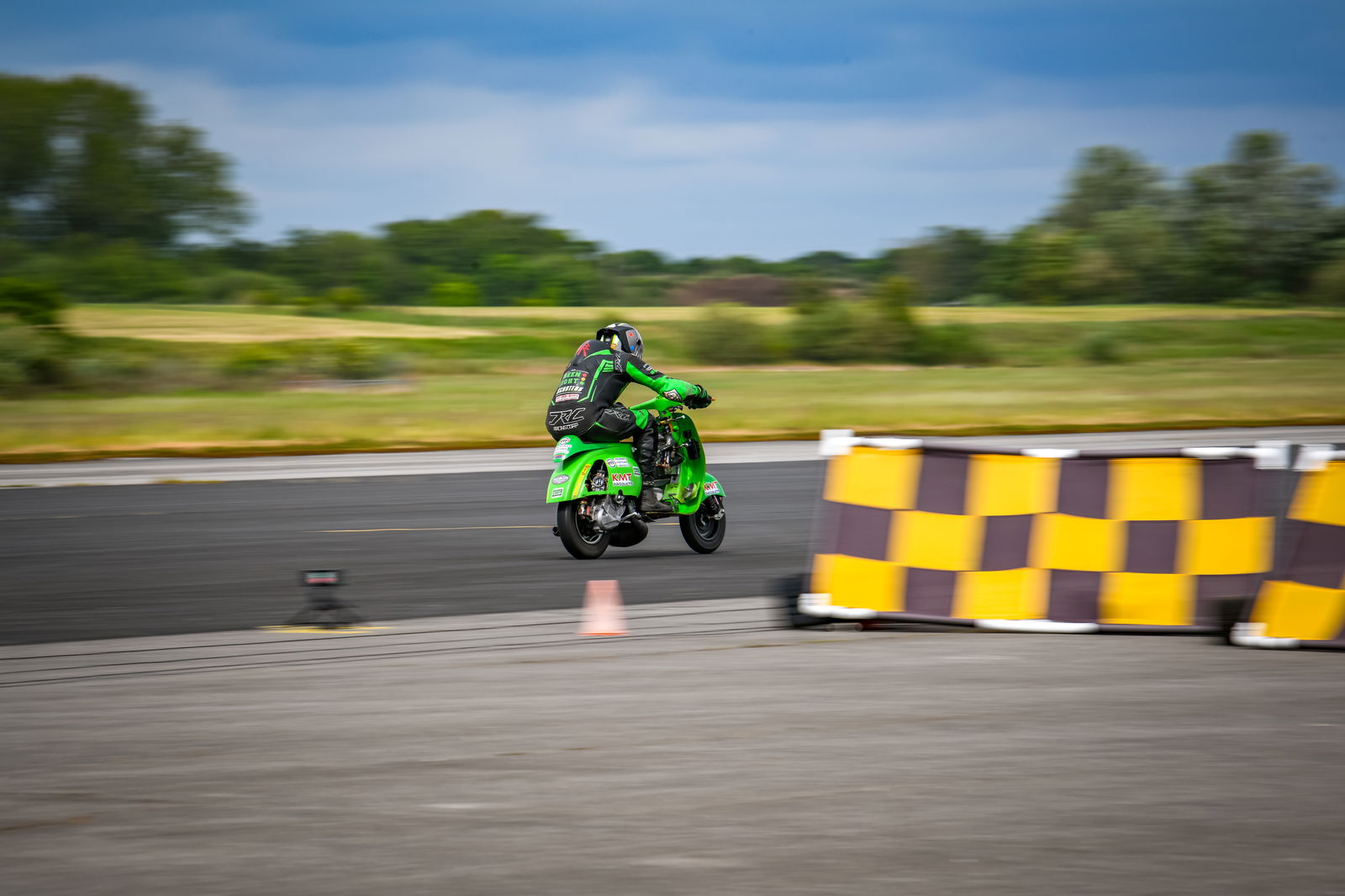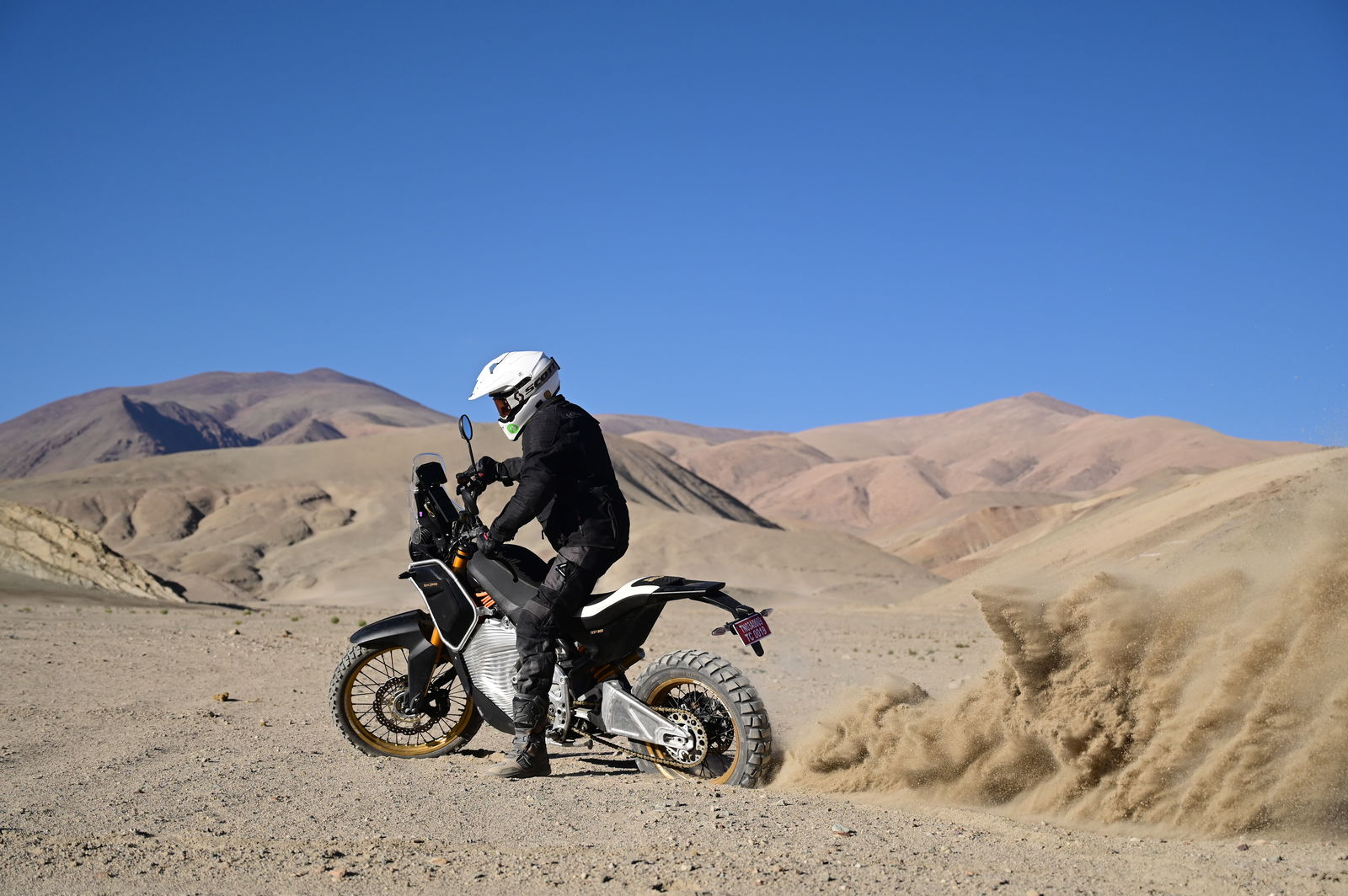Meet the world’s fastest scooter rider
Most people wouldn’t want to do the ton on a scooter. Adie Horrocks is not most people.

“Why?!” - That’s a question that Adie Horrocks probably gets a lot. Why would anyone spend thousands of hours of their life, and who knows how much money, modifying Vespa scooters to achieve 127 mph?
After talking to the man recently, I get the sense that these are not questions he bothers to ask himself. I mean, why ask why? Sometimes, it just happens to be the case that you are really, really good at something. So, you do that something, and - if you’re Adie, at least - you end up being the best in the world, smashing record after record.
Adie is the world’s fastest scooterist. So far this year, he’s broken eight world records, the previous recordholders being himself. Not that he thinks too much about them.
“I think I did 20 world records last year,” he says. “When they were handing them out (at a ceremony) my missus was like, ‘What are they for?’ and I was like, ‘I have no idea.’”
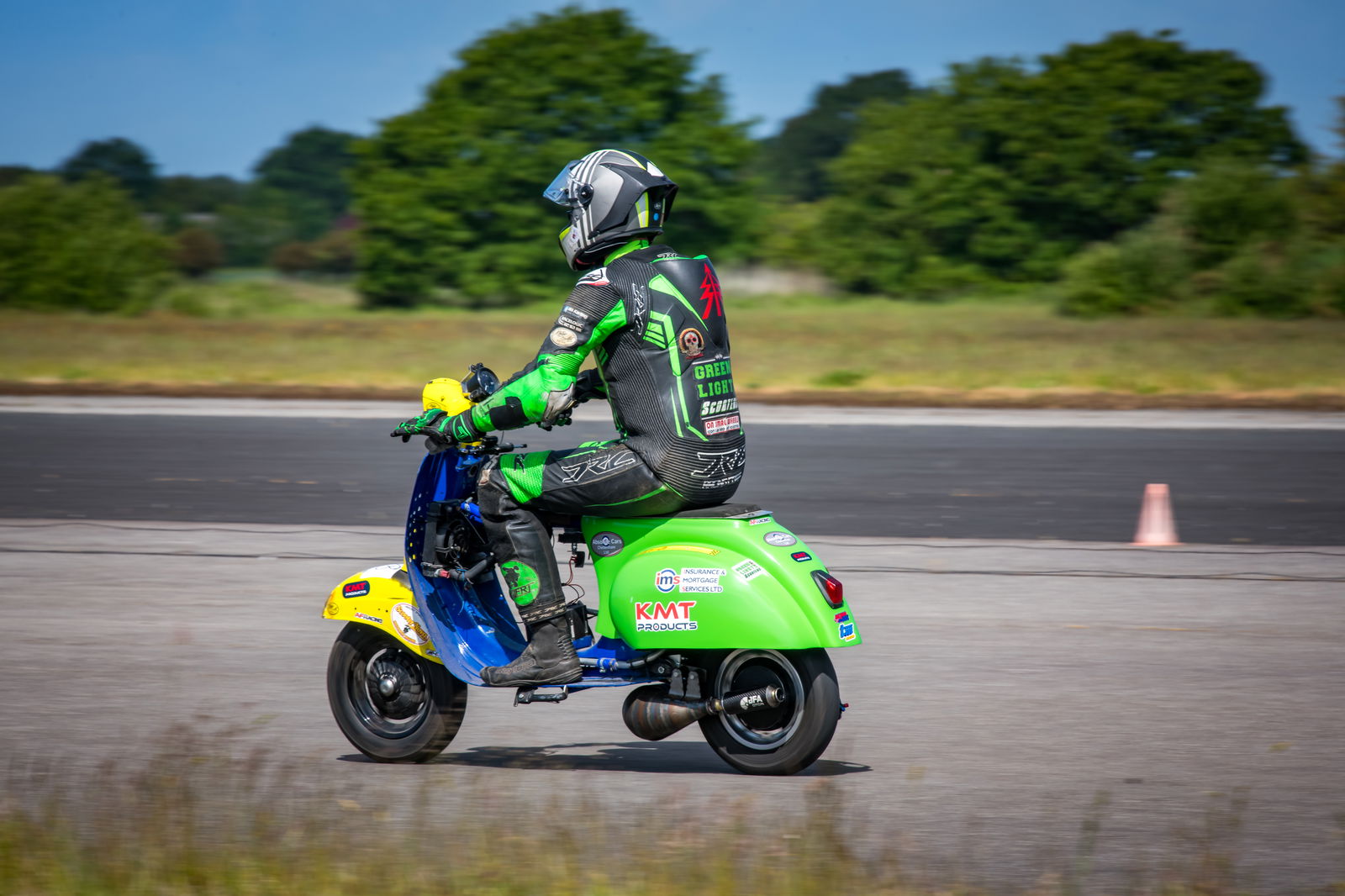
Adie was born in Essex and spent his childhood as part of a military family, bouncing from one RAF base to another. At age 18, he chose to carry on the military tradition and joined the Royal Electrical Mechanical Engineers (REME). They’re the folks who fix everything.
Adie became a mechanic.
“I worked on trucks and Land Rovers and, well, everything that came along, really,” he says.
I’d guess that it was in the REME where Adie developed the mindset necessary for taking something that everyone thinks of as slow - a scooter - and making it decidedly otherwise. You get the sense that phrases like “This can’t be done” or “This is too hard” don’t go down well in the British Army. You’re there to do a job and you are very much expected to do it.
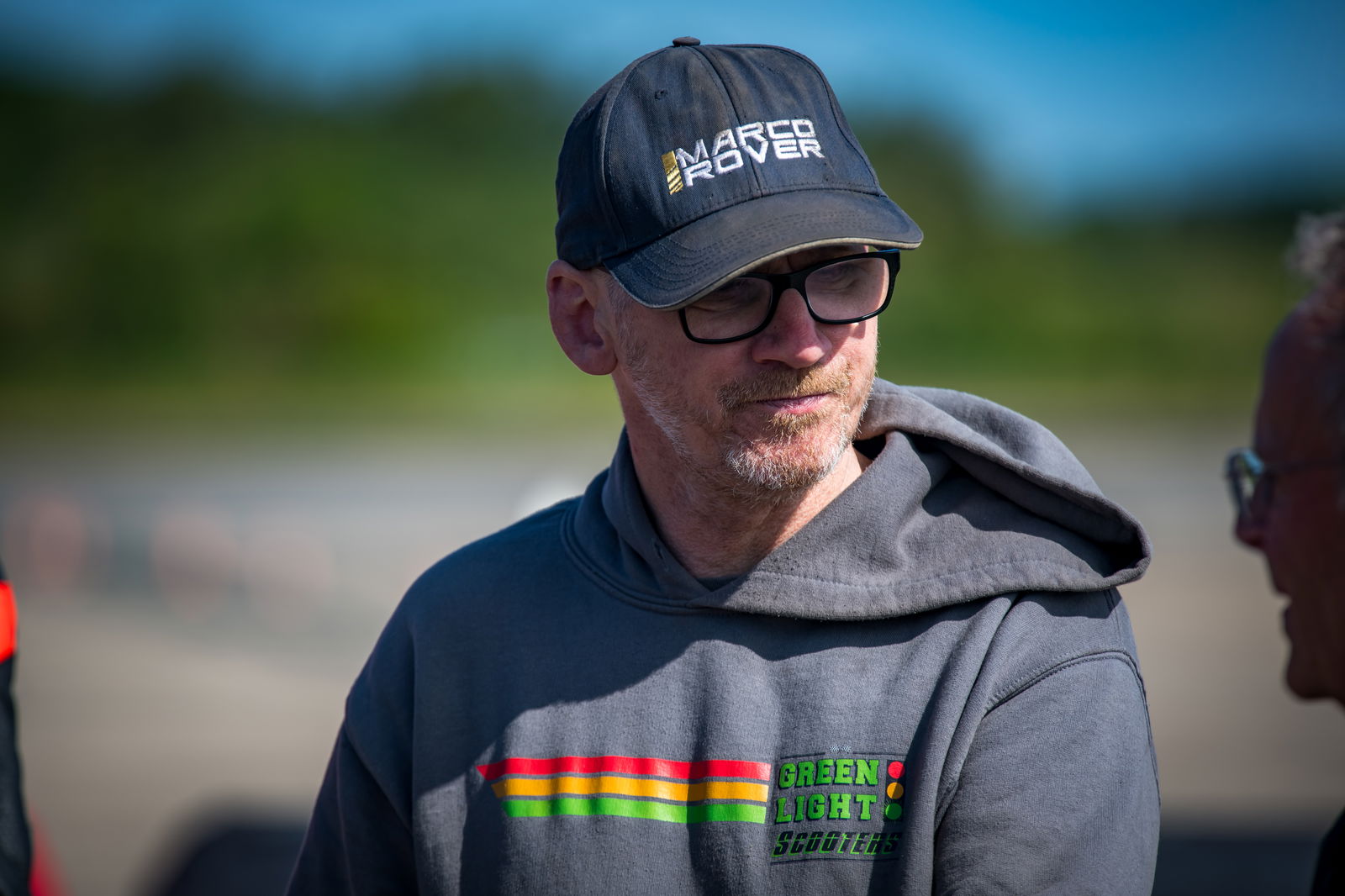
After 24 years doing that job, Adie left the REME and began turning his hand to scooters. As you do.
“I started by doing up a few Lambrettas and selling them on,” he explains. “Just because I liked doing that… I’ve been into scooters since I was about 12. I had a Lambretta and I liked taking it apart and working out how to fix it.”
His interest in scooters was limited to Lambrettas, but when a wrongly categorised Vespa appeared in an eBay search, his life changed. Something about it intrigued him, so he bought it and began to tinker.
Once again, there’s not really a clear answer as to why here, but, hey, why NOT make a Vespa faster? He replaced the 90cc engine with a 130cc unit. Then swapped that out for a tuned-up 125cc. Then a 144. Then a 200. Then a 250…
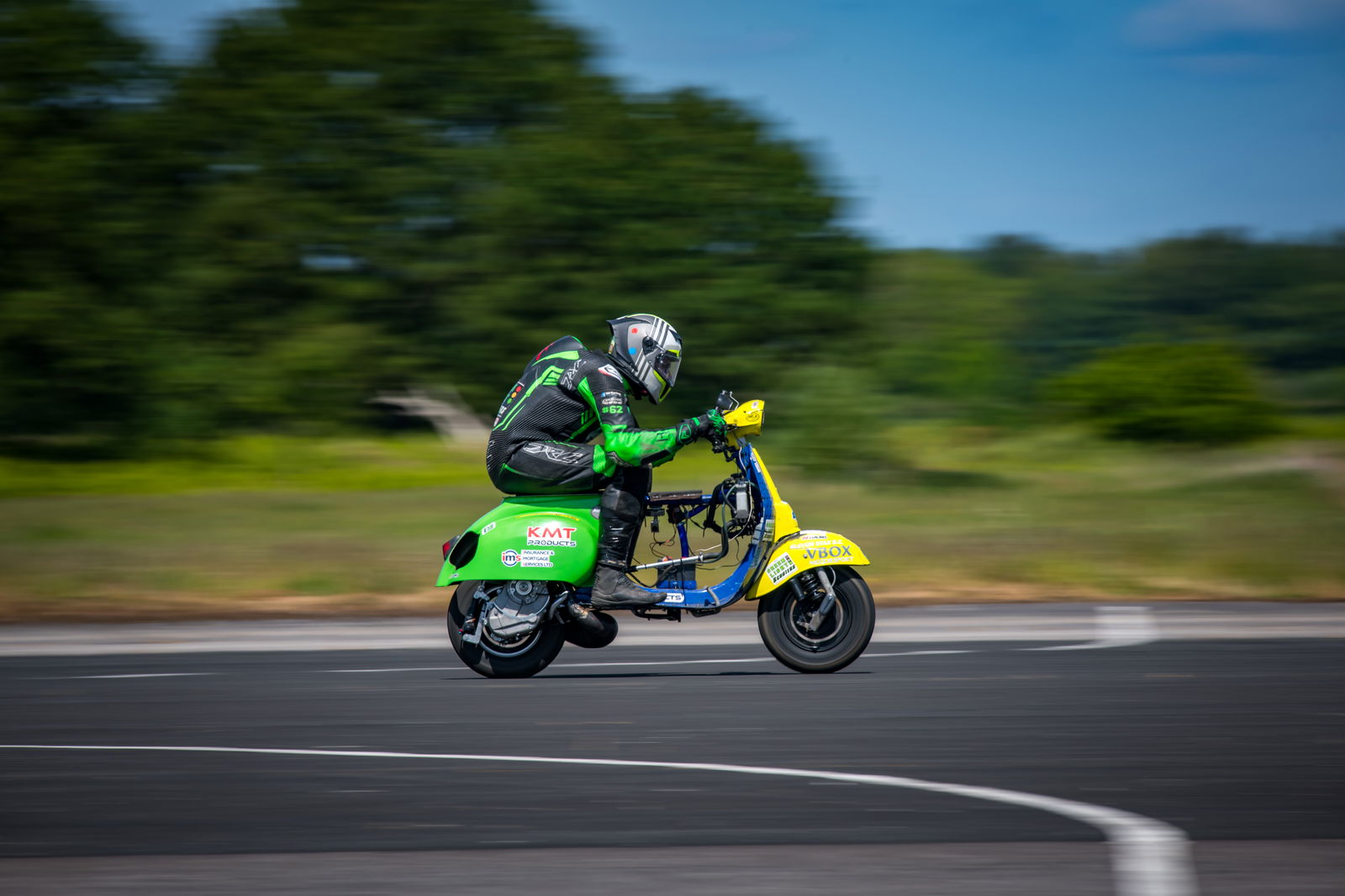
“I was getting it to go faster and faster. Then one of my friends said: ‘Fancy having a go at sprinting?’”
Initially he came along to offer mechanical support.
“It looked like great fun,” Adie says. “I turned around to some of the sprinters and said, ‘When’s the next event?’ They said, ‘A couple weeks' time.’ I said, ‘Right. I’ll go home and build a Vespa sprinter, then’... Two weeks later, I’m on the starting line thinking: ‘What the hell am I doing?’”
Whatever he was doing, he was doing it right. Adie took to it almost naturally.
“It wasn’t a calculated thought process at all,” he says, explaining what drove him to get deeper into racing. “I just liked making them go faster.”
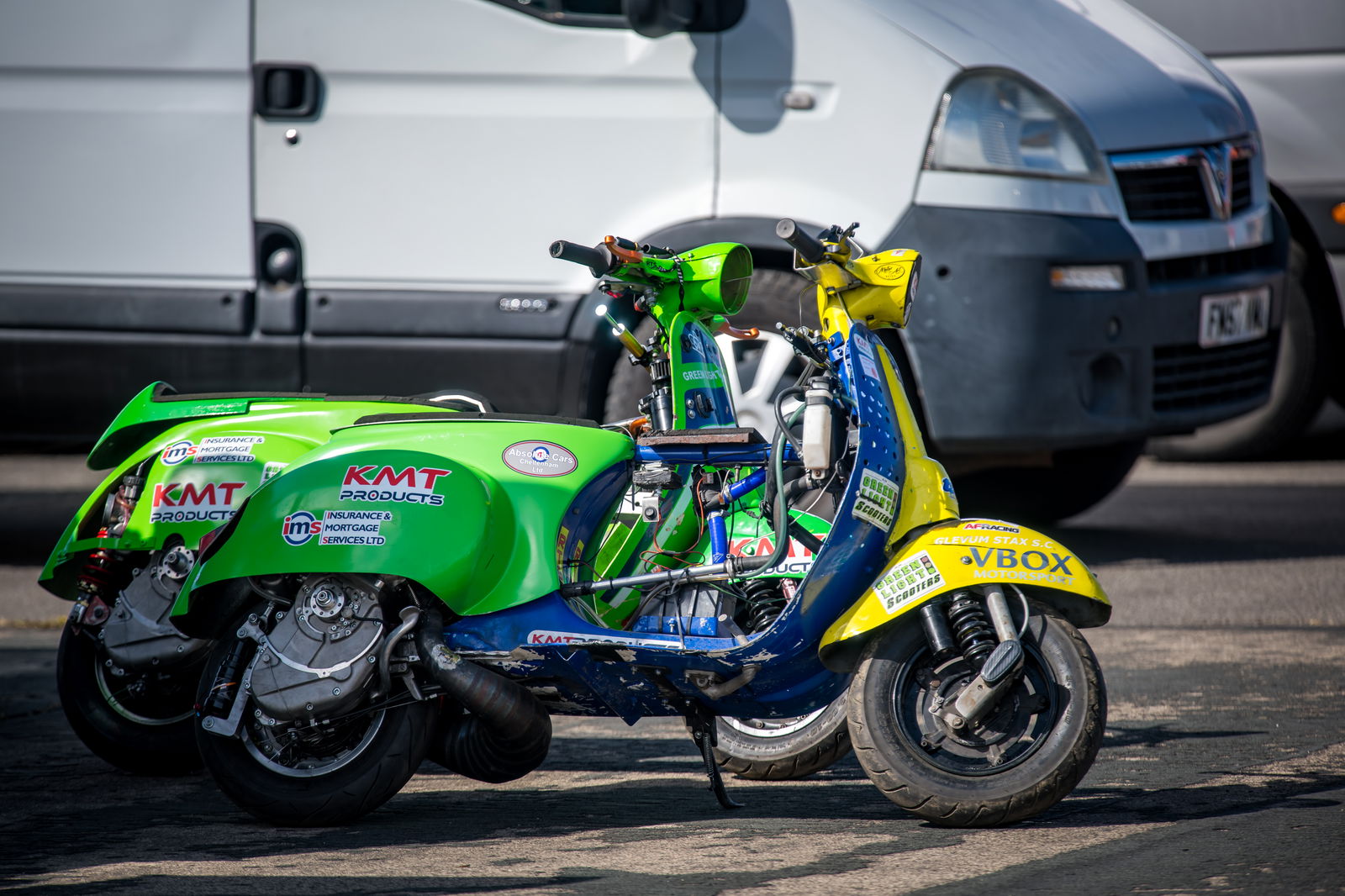
There was a learning process with racing. Adie points out that going fast on a track is different than going fast on the road.
“Getting the power on from the start was all new to me. It was wheelieing and wheel-spinning and loads of things, and it was like, ‘How the hell are you supposed to control this?’”
Learning how to do so, and how to get his scooter faster and faster was - and still is - a process of trial and error. Scooters have a shorter wheelbase than a motorcycle, greater levels of vibration, markedly worse aerodynamics, and so on. There are challenges anywhere you look.
“This is what I do best, you know?” he explains. “You know: Let’s just try a little bit of a fin there, or lower that there, or change the weight from there, and we’ll see what happens.”
Things don’t always go right. A few years ago, he came off in the middle of a sprint and broke both shoulder blades.
“It went unstable at the back and caught me by surprise… I know this is silly, but, I was only 30 yards from the finish line, so I thought: ‘Well, I’ll get over the line and I’ll deal with it then.’ … The front end went light and I went right, left, right, left, right, and got thrown to the left… I was out for six months then.”
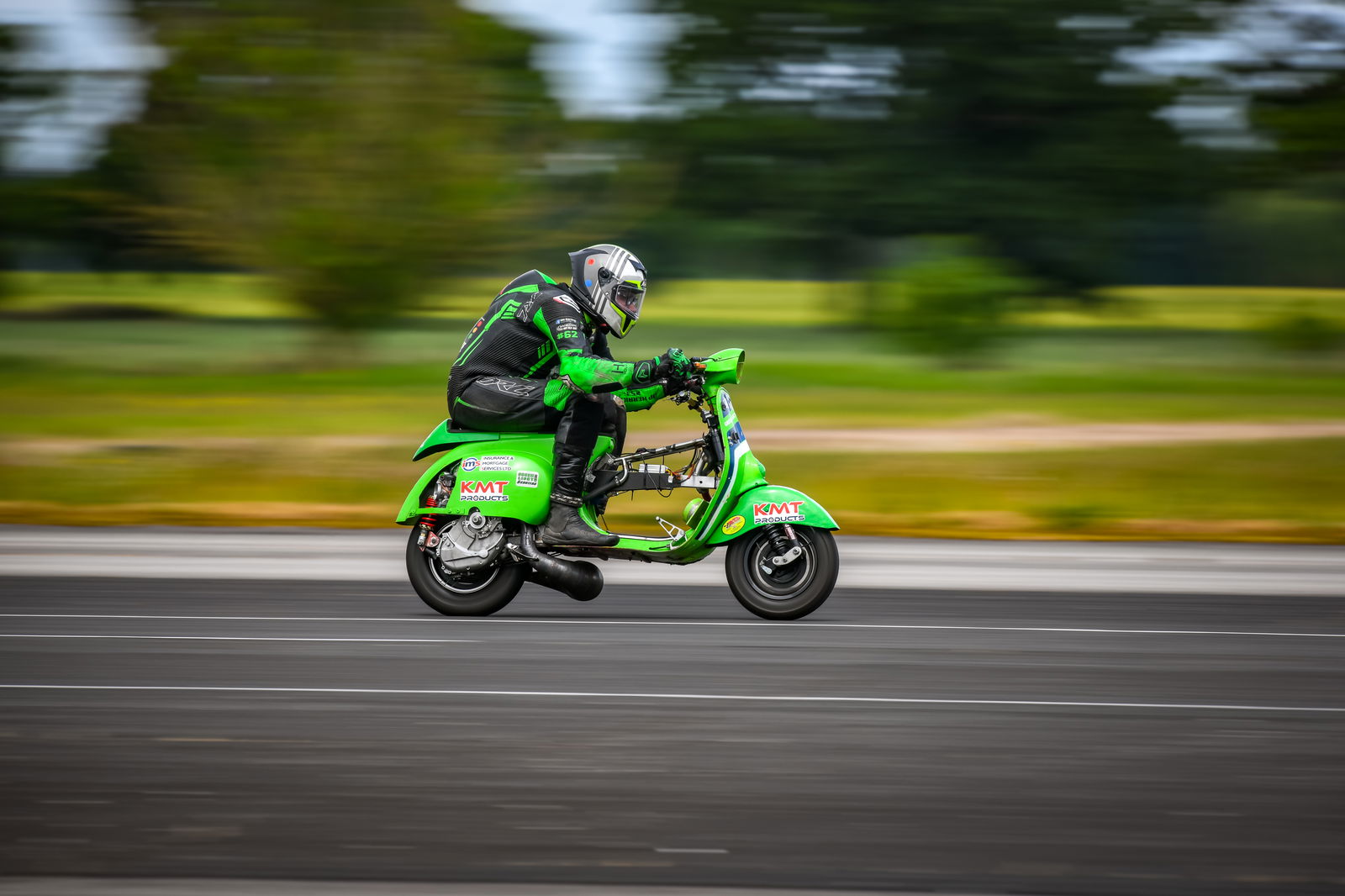
He’s had a few frightening moments this year, as well. Hit with a sidewind while traveling at 108 mph, he found himself fighting a wild tank slapper but somehow staying on the bike - much to his surprise.
“I came through the finish line, everyone’s clapping and going, ‘Oh, well saved,’ and all that, and I’m thinking: ‘Yeah, I don’t think I did that. I think that just happened.’”
He’s also had a shock snap at 121 mph. Thinking it was, in fact, a puncture, he reduced speed slowly as track officials frantically waved for him to stop.
“In my helmet I’m saying, ‘I can’t just cut the effing throttle.’ Then I’m thinking: ‘Where the hell is that smoke coming from? If I’m on fire, I’m bailing’... the people on the track, the staff, to be fair, five or six people were running towards me by the time I was slowing down. They grabbed me and grabbed the bike. That was a bit hairy.”
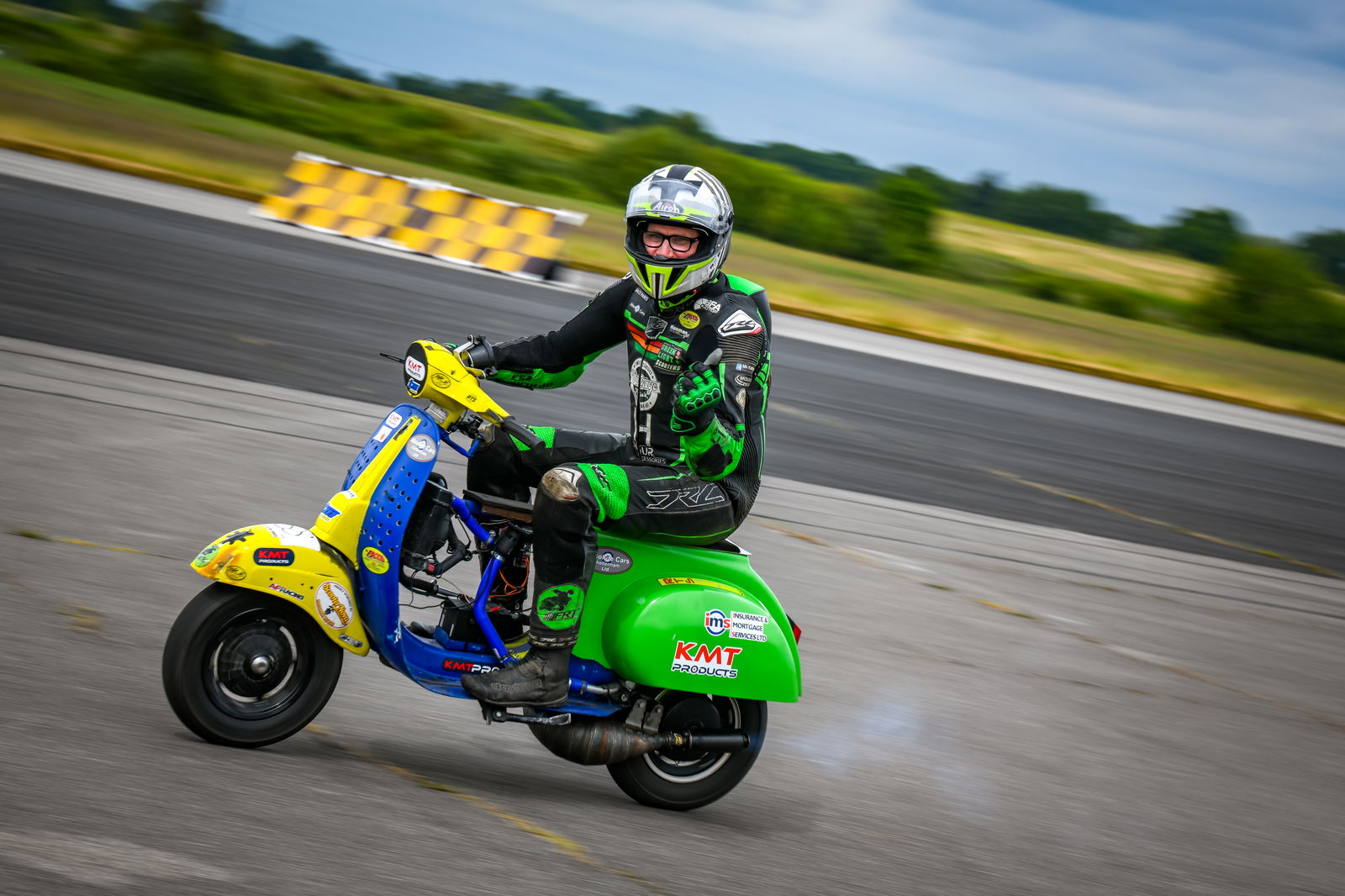
Nonetheless, he was able to set eight world records at Elvington Speed Week back in May, clocking up four records each in two different engine-capacity categories. On his 125cc machine he topped out at 117.2 mph; on his 244cc Vespa (in the 250 class) he hit a top speed of 127.5 mph.
He’ll be back at it in September, again trying to beat his own records. You can cheer him on at Elvington Air Field in York on 20-21 September. Further into the future, he’s looking into pushing his scooters even more, as well as competing in additional classes.
“50 cc, 100 cc. Just going to try to set some more world records,” he says. “Hopefully someone will come along in the future to try to beat them.”
Adie will probably be able to help with that, too. When he’s not fixing up his own scooters he is building bespoke machines for others via his business, Green Light Scooters.
“It’s about speed,” he says to me - trying again to explain why he does this. “It doesn’t really matter what the machine is. It’s about pushing the machine to its top speed.”
